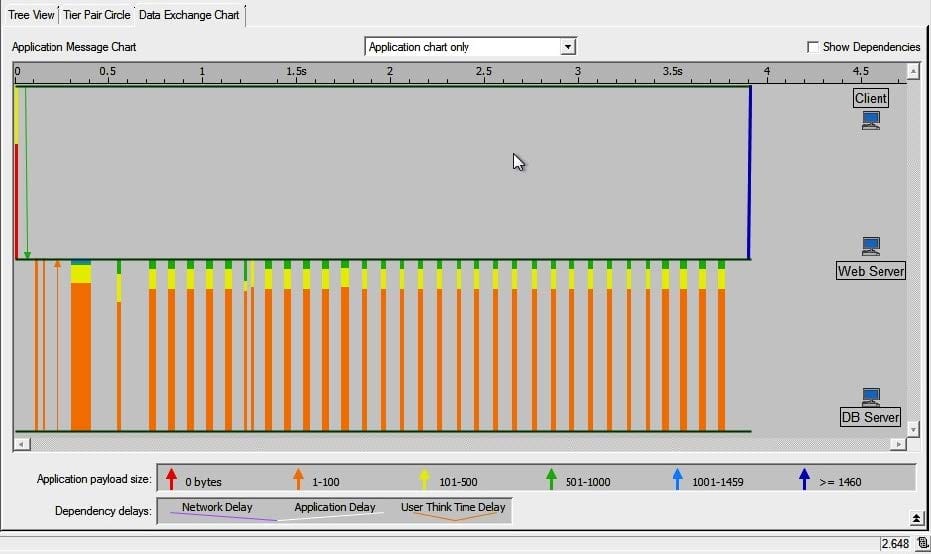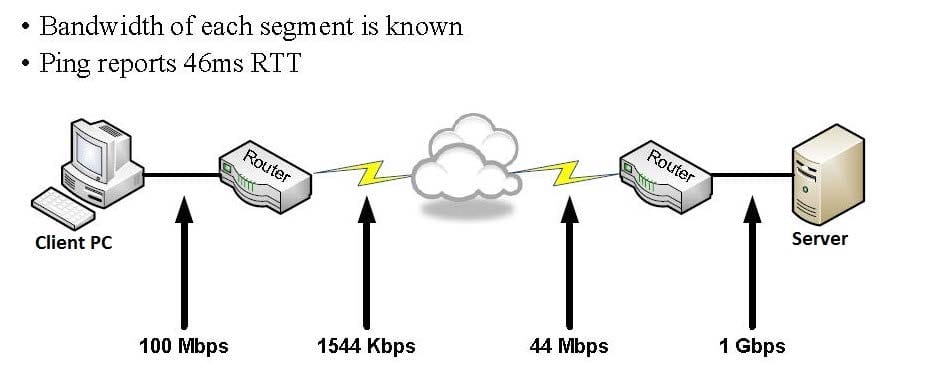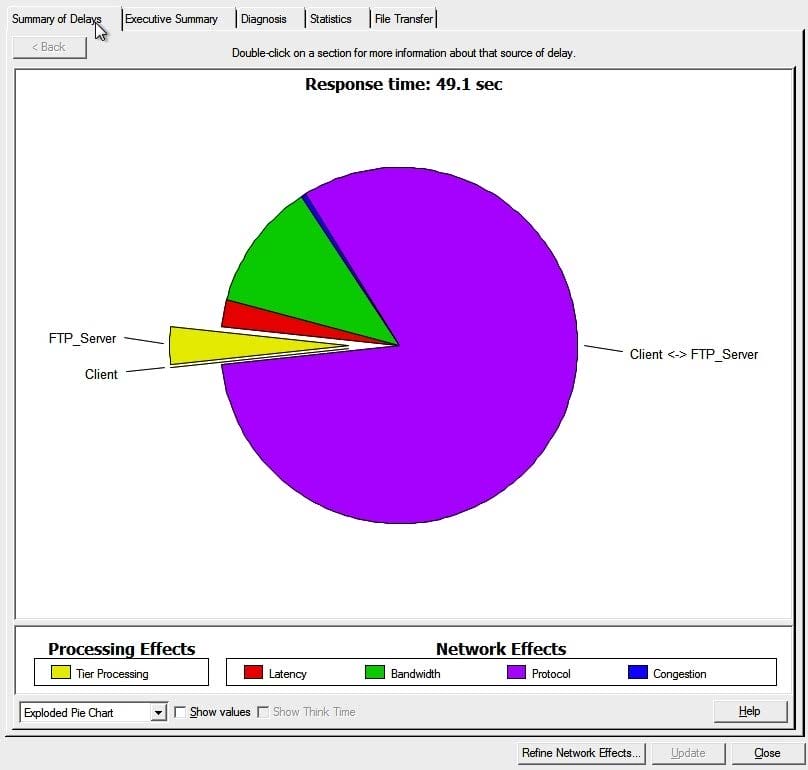Exam Details
Exam Code
:499-01Exam Name
:Riverbed Certified Solutions Professional - Application Performance ManagementCertification
:Riverbed CertificationsVendor
:RiverbedTotal Questions
:196 Q&AsLast Updated
:Apr 18, 2025
Riverbed Riverbed Certifications 499-01 Questions & Answers
-
Question 51:
On the AppDoctor, which delay causes can be identifiied by default on the pie chart?
A. CPU utilization and memory leaks
B. Network, packet loss and parallel effects
C. Network, latency and server
D. The default pie chart displays only information about flows
E. Giant packets, runts and corrupted packets
-
Question 52:
On which port does the AppTransaction Xpert agent listen by default?
A. TCP 27401
B. UDP 27401
C. TCP 24701
D. UDP 24701
-
Question 53:
Refer to the exhibit.

What are the likely conclusions after analysis of the Data Exchange Chart? (Select 2)
A. This transaction takes about 4 seconds to complete and this analysis proves the user's belief that additional WAN bandwidth would improve application performance.
B. The majority of activity is between the two servers.
C. Most of the traffic consists of small messages.
D. Much of the application response time is caused by the Wide Area Network (WAN).
-
Question 54:
The AppDoctor Summary of Delays window divides the total transaction response time into which two primary components of delay? (Select 2)
A. Network effects
B. Tier processing effects
C. User delay
D. TCP/IP delay
-
Question 55:
On which default TCP port does the AppTransaction Xpert console communicate with its agents?
A. 80
B. 443
C. 27401
D. 37551
E. It uses a window, not a port.
-
Question 56:
What is the name of the command line program that can be used in AppTransaction Xpert to capture traffic without using capture manager?
A. Distributed agent controller
B. PathProbe
C. Quick Predict
D. AppDoctor
E. CLI capture
-
Question 57:
When analyzing a TCP-based transaction, you should suspect TCP as the root cause of an issue when AppTransaction Xpert's AppDoctor Statistics tab shows what?
A. Large network transfer effects and large protocol delays
B. A high number of application turns and application messages
C. A high percentage of tier processing effects delay
D. Large parallel effects delay
-
Question 58:
Refer to the exhibit.

What should you specify as the bandwidth and latency between the client and server during import into AppTransaction Xpert?
A. Bandwidth = 1 Gbps; latency = 46 milliseconds
B. Bandwidth = 100 Mbps; latency = 46 milliseconds
C. Bandwidth = 1544 Kbps; latency = 23 milliseconds
D. Bandwidth =1544 Kbps; latency = 46 milliseconds
-
Question 59:
When multiple types of delay (tier processing, bandwidth, and latency) occur simultaneously, the amount of delay is shown in the AppDoctor Summary of Delays as: A. Parallel effects
B. Congestion
C. Protocol delay
D. Network transfer delay
-
Question 60:
Refer to the exhibit from the AppDoctor.

The primary bottleneck is probably due to:
A. Processing at client
B. Chattiness
C. Packet loss
D. Processing at server
E. Latency
Related Exams:
101-01
Riverbed Certified Solutions Associate201-01
Riverbed Certified Solutions Associate - Network Performance Management299-01
Riverbed Certified Solutions Professional - Network Performance Management499-01
Riverbed Certified Solutions Professional - Application Performance Management501-01
Riverbed Certified Solutions Associate - Hyper-converged Branch599-01
Riverbed Certified Solutions Professional - Storage Delivery Exam810-01
RCPE Certified Professional Network & Infrastructure Visibility830-01
RCPE Certified Professional WAN Optimization
Tips on How to Prepare for the Exams
Nowadays, the certification exams become more and more important and required by more and more enterprises when applying for a job. But how to prepare for the exam effectively? How to prepare for the exam in a short time with less efforts? How to get a ideal result and how to find the most reliable resources? Here on Vcedump.com, you will find all the answers. Vcedump.com provide not only Riverbed exam questions, answers and explanations but also complete assistance on your exam preparation and certification application. If you are confused on your 499-01 exam preparations and Riverbed certification application, do not hesitate to visit our Vcedump.com to find your solutions here.